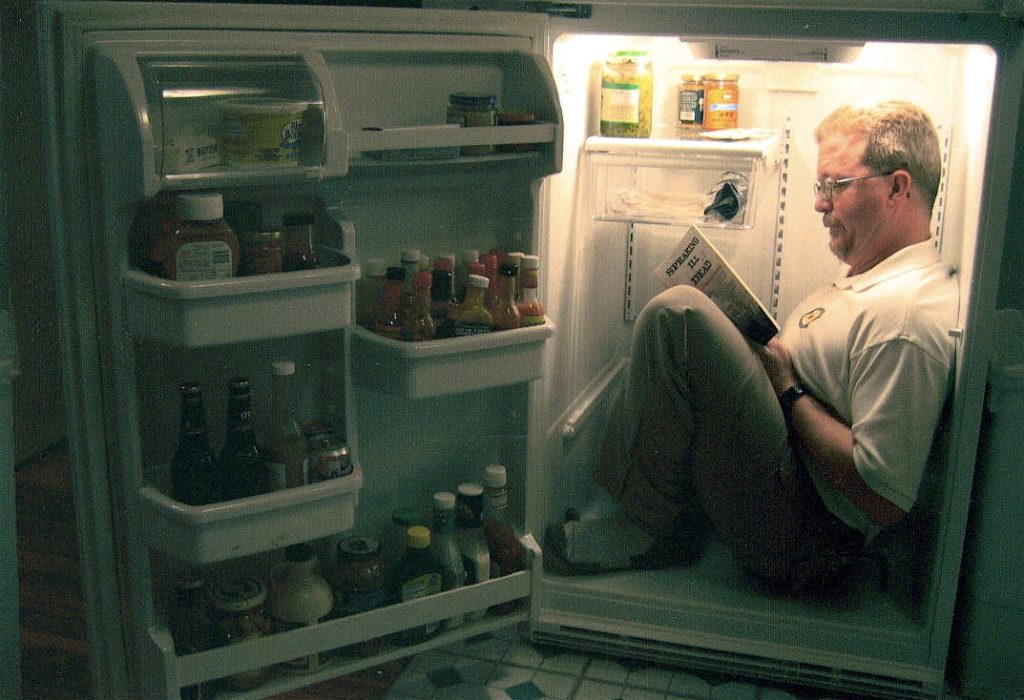“Few people can say: I am here. They look for themselves in the past and see themselves in the future.” — Georges Braque (1882–1963)
Tag Archives: Self
I knew him well
If a person were to read my ~6,000 blog posts, spanning 20 years, he/she would know me better than anyone who has ever met me. That person does not exist and I suspect never will.
Perhaps one day an AI (“I prefer the term ‘artificial person‘”) will read them and want to discuss what I wrote/shared.
I won’t be around but perhaps this future AP will be able to create a synthetic version of me, using everything I’ve shared (YouTube, etc) and we’ll have a nice chat.
Stillness
Thoughts think themselves
For those of us who subscribe to the theory there is no self — that me “I” thought is just a persistent illusion — a frequent question is where do thoughts come from if there is no “me” to think them?

They come from the subconscious whose name happens to be Jeff. Jeff sits in the refrigerator that is your consciousness. He has one of those horseshoe magnets he uses to arrange tiny word magnets on the outside of the refrigerator. Jeff is working backward and in the dark (trust me on that point) so the ideas he strings together are often random and arbitrary. He can sense when there is an awareness on the other side of the door and this makes him uncomfortable so he slows down the magnet work. When he feels the awareness depart he gets busy again.
Experience Self vs. Memory Self
- Being happy “in” you life, vs. being happy “about” your life
- We don’t choose between experiences, we choose between memories of experiences
- We don’t think of the future as experience, we think of the future as anticipated memories
- Why do we give so much weight to memories, relative to the weight we give experiences?
- We do not attend to the same things when we think about life and when we actually live.
A passing thought
“The noticing of a passing thought and the explosion of an ancient star are not unrelated phenomenon: both the product of a self-creating, self-destroying ubiquitous capability.”
There is no way of transforming yourself
“Wanting to overcome the mess and not have it anymore is precisely the mess. […] There is nothing anyone can do to be anyone else than who they are, or to feel any other way than the way they feel at this moment. […] There is no way of transforming yourself. The “you” that you imagine to be capable of transforming yourself does not exist.”
— Still the Mind (Alan Watts)
You are the Universe
The Nature of Consciousness
“In this episode of the Waking Up podcast, Sam Harris speaks with Thomas Metzinger about the scientific and experiential understanding of consciousness. They also talk about the significance of WWII for the history of ideas, the role of intuition in science, the ethics of building conscious AI, the self as an hallucination, how we identify with our thoughts, attention as the root of the feeling of self, the place of Eastern philosophy in Western science, and the limitations of secular humanism.”
“Thomas K. Metzinger is full professor and director of the theoretical philosophy group and the research group on neuroethics/neurophilosophy at the department of philosophy, Johannes Gutenberg University of Mainz, Germany. He is the founder and director of the MIND group and Adjunct Fellow at the Frankfurt Institute of Advanced Studies, Germany. His research centers on analytic philosophy of mind, applied ethics, philosophy of cognitive science, and philosophy of mind. He is the editor of Neural Correlates of Consciousness and the author of Being No One and The Ego Tunnel.”
Why Buddhism Is True
 The full title of this book is: Why Buddhism is True: The Science and Philosophy of Meditation and Enlightenment. And it’s the science and philosophy parts of the book that I found most insightful. There is so much within and about Buddhism that are really hard for me to grasp. Emptiness, non-self, just to mention two. This book gave me — for the first time — a tiny, brief glimpse of what these might be. The author explains how natural selection plays such an important role in determining who and what we are. And his explanation of consciousness is the best I’ve come across. This was a breakthrough book for me. I’ll be reading it again. Here are a few excerpts, stripped of all context. Continue reading
The full title of this book is: Why Buddhism is True: The Science and Philosophy of Meditation and Enlightenment. And it’s the science and philosophy parts of the book that I found most insightful. There is so much within and about Buddhism that are really hard for me to grasp. Emptiness, non-self, just to mention two. This book gave me — for the first time — a tiny, brief glimpse of what these might be. The author explains how natural selection plays such an important role in determining who and what we are. And his explanation of consciousness is the best I’ve come across. This was a breakthrough book for me. I’ll be reading it again. Here are a few excerpts, stripped of all context. Continue reading

